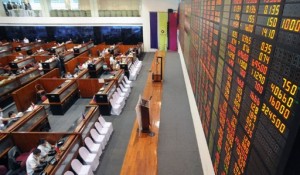Despite fast-rising consumer prices and interest rates, residential condominium takeup in Metro Manila hit a record high in 2018 and home buyers demanded for more aside from the new units brought to the market by property developers.
However, this record takeup may be difficult to replicate this 2019 as new launches may slow down due to the dearth of available land in the metropolis and lofty prices of land in major central business districts (CBDs), property consulting firm Colliers Philippines reported yesterday.
Condominium presales covering major central business districts reached 54,000 units last year compared to 53,000 units in 2017, Colliers manager for research Joey Roi Bondoc said in a briefing. He noted a strong takeup for affordable to middle-income units or those within the P1.7 million-P5.9 million range.
The volume of residential condominium units sold ahead of completion last year exceeded the 43,000 new preselling units rolled out by property developers. Such newly launched inventory increased from 36,000 in 2017 and 35,000 in 2016.
With a more benign inflation environment this year, which in turn will likely prevent further interest rate increases by the local central bank, Colliers believes that demand from the affordable and mid-income residential segment would be sustained this year.
Still, “it’s hard to predict launches because it depends on the landbank of the developer. In (CBDs), they can redevelop a parking lot into a residential (area), or buy property or go into joint ventures. But prices are so high now and others (landowners) don’t want to sell,” said Colliers Philippines’ Richard Raymundo.
“It depends now on your view (as a developer). You can go to Quezon City, where it’s a bit more affordable. You’ll be a first mover, but there’s that risk,” he said.
The groundbreaking for the Manila subway—the most expensive infrastructure project approved by the government—is seen to benefit Quezon City as seven of the 13 metro stations will be in this city. The most populous city is also seen to benefit from improved connectivity from the construction of Metro Railway Transit 7 and the common LRT-MRT station.
Integrated estates similar to those developed by Ayala Land and Eton Properties are thus seen to rise in Quezon City.
Colliers also sees bright prospects for new residential towers in Ortigas to complement the development of new office spaces in this district from 2019 to 2021.
Due to the scarcity of available land in Makati and BGC, Colliers urges residential developers to look for opportunities in fringe areas.
Furthermore, residential property developers are now also looking for opportunities outside Metro Manila like Pampanga, Cebu or Davao.
Given strong demand from Chinese investors, Colliers expects the Manila Bay area to overtake the residential condominium market in Makati central business district by 2021. Developers here were advised to focus on projects for the upscale market or those priced at over P6 million per unit.
Colliers believes that luxury condominium demand in Metro Manila would remain strong due to rental yields—which at an average of 5.1 percent is still one of the most attractive in the region—alongside sustained requirements from affluent Filipinos, foreign investors and offshore gaming firms.


